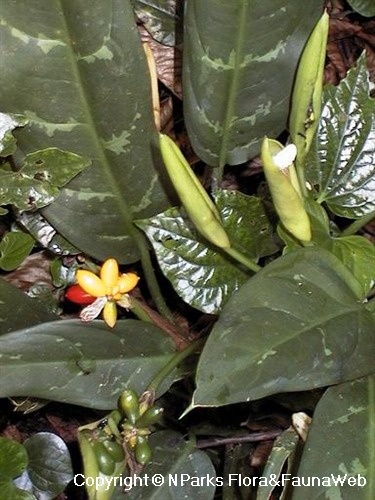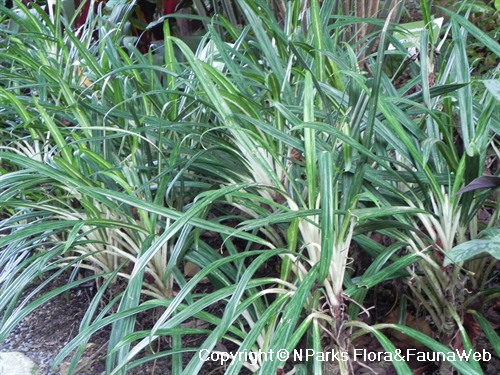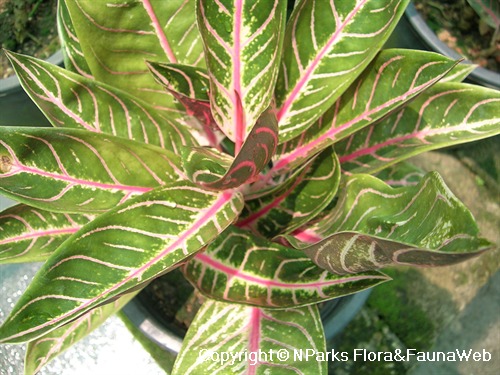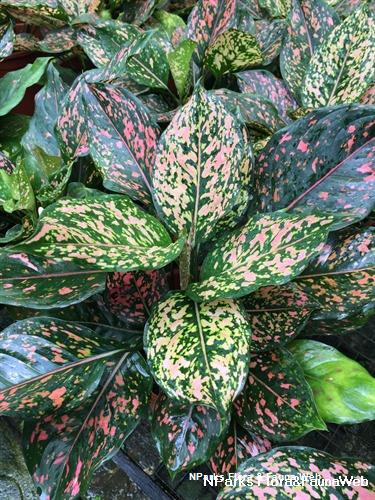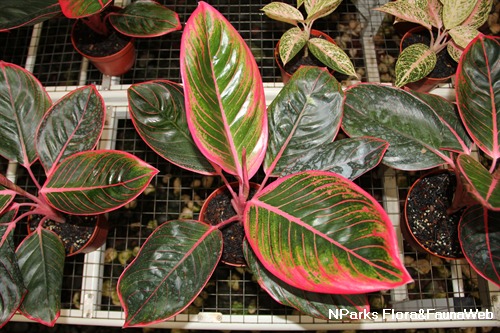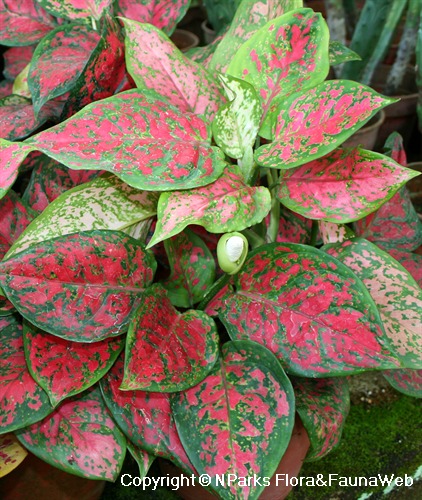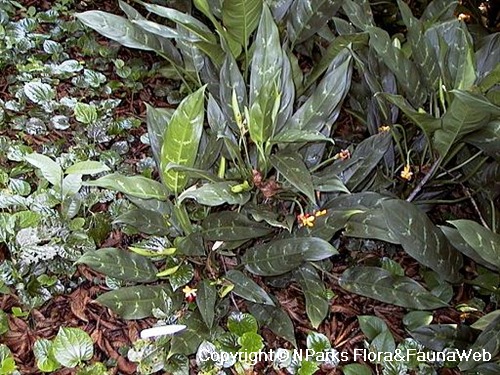
Name
Classifications and Characteristics
| Plant Division | Angiosperms (Flowering Seed Plants) (Monocotyledon) |
|---|---|
| Plant Growth Form | Herbaceous Plant |
| Lifespan (in Singapore) | Perennial |
| Mode of Nutrition | Autotrophic |
Biogeography
| Preferred Climate Zone | Tropical |
|---|---|
| Local Conservation Status | Non-native (Horticultural / Cultivated Only) |
Description and Ethnobotany
| Growth Form | They are perennial, herbaceous plants, usually forming clumps. |
|---|---|
| Foliage | The leaves are green, often with patterns and markings on the leaf blades and veins. |
| Stems | The stems are usually hidden until the lower leaves are shed. When exposed, stem is cream-coloured or brown with visible leaf scars. |
| Flowers | The inflorescence is a spadix, subtended by a spathe. |
| Fruit | The infrutescence is a cluster of berries, often red and oblong. |
| Cultivation | It grows best in bright, indirect sunlight or semi-shade and prefers moist, well-draining, loamy soil. Although it tolerates heavy shade, the plant may grow leggy over time. Keep away from bright, direct sunlight to prevent leaves from scorching. |
| Etymology | The genus Aglaonema is derived from Greek aglaos, "bright" and nema, "thread", possibly referring to the stamens. |
Landscaping Features
| Desirable Plant Features | Ornamental Foliage |
|---|---|
| Landscape Uses | General, Parks & Gardens, Interiorscape/ Indoor Plant |
| Usage Hazard - Cons | Toxic Upon Ingestion, Irritant - Sap |
| Usage Hazard - Cons Remarks | All parts of plant contains calcium oxalate crystals in their sap, causing mouth and throat irritation if ingested, and possible itchiness if in contact with the skin. Keep away from pets and children. |
Plant Care and Propagation
| Light Preference | Semi-Shade, Full Shade |
|---|---|
| Water Preference | Moderate Water, Occasional Misting |
| Plant Growth Rate | Moderate |
| Maintenance Requirements | Low |
Foliar
| Foliage Retention | Evergreen |
|---|---|
| Foliar Modification | Flower/Fruit Bract |
| Foliar Type | Simple / Unifoliate |
| Foliar Arrangement Along Stem | Spiral |
| Foliar Attachment to Stem | Petiolate |
Image Repository
Others
| Master ID | 34026 |
|---|---|
| Species ID | 8442 |
| Flora Disclaimer | The information in this website has been compiled from reliable sources, such as reference works on medicinal plants. It is not a substitute for medical advice or treatment and NParks does not purport to provide any medical advice. Readers should always consult his/her physician before using or consuming a plant for medicinal purposes. |

